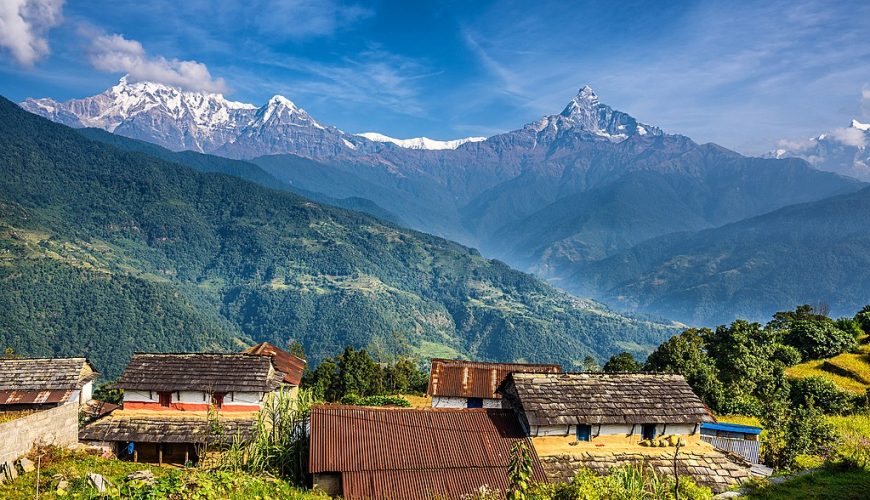Nepal has removed quarantine requirements for visitors who have got both doses of the Covid-19 vaccine, a move aimed at boosting pandemic-depressed travel and tourism business. Tourism Minister Bhanubhakta Dhakal told the Post on Friday that the decision to remove quarantine requirements for such foreign tourists was taken by Thursday’s Cabinet meeting.

“The new guideline to visit Nepal will be implemented soon,” said Dhakal.
Last week, the Tourism Ministry had proposed removing quarantine requirements for travellers who have received both doses of the vaccine and resume the on-arrival visa at Kathmandu’s Tribhuvan International Airport. It is, however, not clear whether the Cabinet has approved the ministry’s plan to resume issuing on-arrival visas at the airport. Taranath Adhikari, the spokesperson for the Tourism Ministry, said that they were yet to receive a copy of the Cabinet decision.
“We will make the details public once we receive the copy of the decision,” Adhikari told the Post. “As per the proposal, tourists coming to Nepal have to submit documentation or cards as proof that they have been vaccinated.
Many countries have termed documents of immunisation against Covid-19 as vaccine passports. Some countries have rolled out digital passports as well so as to facilitate travelling.
CLICK HERE TO SIGN UP FOR BEST TRAVEL DEALS
The trade group for global airlines, the International Air Transport Association, is testing a version it calls Travel Pass. IBM has already developed a Digital Health Pass that is being trialled in the US as a health passport, capturing Covid-19 test results, temperature scans and vaccine records.
There are several other private-sector initiatives globally to launch vaccine passports to provide a safe way for people to travel.
Spokesperson and joint-secretary Adhikari said that non-vaccinated tourists entering Nepal have to submit a negative polymerase chain reaction (PCR) report. The report must show the test was conducted 72 hours prior to their departure from the country of origin.
As per the proposal, visitors have to do another PCR test after arrival, and before heading to their respective destinations in Nepal.
CLICK HERE TO BECOME A TRAVEL EVE PARTNER
Presently, as per the Department of Tourism, prior approval documents required for entry to Nepal are a negative PCR report taken less than 72 hours before departure, hotel booking for at least seven days’ quarantine in Nepal and insurance of at least $5,000, per person, against Covid-19.
Tourists must go into hotel quarantine for a minimum of seven days upon their arrival in Nepal.
Tourists are also required to take a PCR test on the fifth day of hotel quarantine at their own expense, and they will be allowed to go on their expedition or trek if they test negative.
Dhananjay Regmi, chief executive officer of the Nepal Tourism Board, said that the removal of quarantine requirements is, actually, an announcement that Nepal is open and normal now. “The experience of some of the countries shows that the risk of infection from vaccinated individuals is very small or negligible. We have been through a lot of pressure in the past 12 months, and we are all hoping for a safe resumption of travel in Nepal.”
According to Regmi, the Tourism Board is participating in the 28th edition of South Asian Trade and Travel Exchange Expo (SATTE), one of the largest travel trade shows in the subcontinent, that will be held at India Expo Mart, Delhi on March 24. This is the first travel event to be held after a year. “We have started formal promotional activities abroad after nearly a year,” he said. Nepal’s heavily tourism-based economy struggled in 2020 as the country saw a massive revenue fall. The pandemic resulted in tens of thousands of jobs lost as well. According to the statistics of the Department of Immigration, only 230,085 foreign tourists visited Nepal last year, about the same number that came in 1986. Most of them arrived before the country imposed entry restrictions on March 20.



Comment (0)